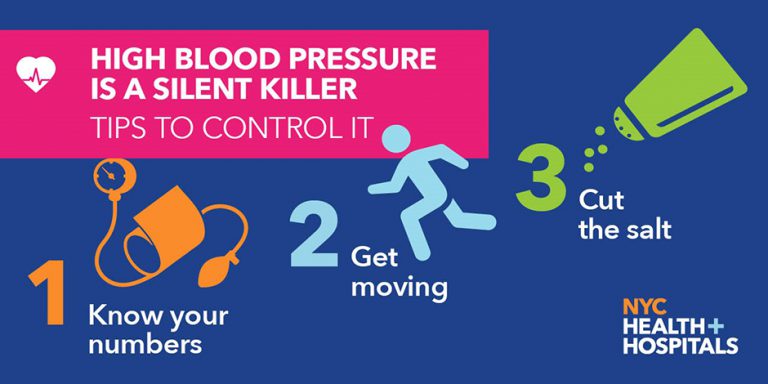Helpful Tips to Eat Smart

Holiday celebrations make it difficult to stick to a healthy eating program. With poor nutrition linked to diabetes, heart disease, obesity, and other chronic conditions, it’s more important than ever to get back on track and make the right food choices. Here are tips from NYC Health + Hospitals dieticians to promote sound eating habits and encourage physical activity to cut down on calories and maintain a healthy weight to live your healthiest life in 2016.
Tip #1: Variety is Key
Different vitamins and essential nutrients are found in different foods. A nutritious meal may consist of lean meat (e.g. chicken, turkey, or fish), a variety of vegetables that will ensure that you don’t miss out on essential vitamins, and a serving of high-fiber foods, such as whole wheat bread or pasta, or brown rice. And, choose foods that are grilled, steamed, baked, broiled, or lightly sautéed.
Tip #2: Think Visual
Portion control is vital when it comes to nutrition. A piece of lean meat will resemble a deck of cards, for example, and a side of rice should be the equivalent of a small ball. Serving food on a smaller plate also helps with portion control.
Tip #3: Stay Active
Moderate exercise is another key ingredient for good nutrition. Take the stairs or walk instead of drive, when appropriate.
Tip #4: Avoid the Salad Trap
While leafy greens and fresh vegetables are always a low-calorie option, it’s what you put on the salad that can catch up with you. To dress down high-calorie salads, skip the bacon and the cheese. Choosing a lite, oil-based salad dressing is also helpful.
Tip #5: Reach for Smart Snacks
Instead of munching on potato chips or other packaged foods try bean salads. They are easy to make and high in protein, packed with fiber, and low in fat. They even have carbohydrates to help keep you going.
Avoid anything high in saturated fat (the number one contributor to high cholesterol). Opt for “healthy” fats found in salmon, sardines, nuts, or avocados. If you’re craving something sweet try spreading peanut butter on apple slices.
Tip #6: Know Your Vitamin Levels
Some medications have the ability to deplete the body of vitamins and minerals. If you are taking medications for a long period of time, consult with your physician and have your vitamin levels tested through a simple blood test.
Tip #7: Plan Ahead
Convenience plays a big factor in our food choices, so planning ahead is vital. Rather than grab a candy bar from the shelf, make a grocery list and do some smart shopping ahead of time to buy healthy alternatives, like fresh fruit.
And don’t forget healthy beverages. Instead of drinking calories in sugary sodas try adding fresh fruit to water or seltzer for natural sweetness.
Tip #8: Read the Labels
Before buying any product, carefully read each label so you can count calories properly. Remember that ‘serving size’ does not refer to the whole package. Understand the portion size and the calories for each portion.
Tip #9: Deprivation Leads to Craving
Always leave room for small treats from time to time. Never totally deprive yourself of foods you enjoy. The more you deprive yourself, the more you crave, causing you to fall off the diet wagon.
Eat right and feel great!
The following NYC Health + Hospitals dietitians contributed to this article: Tracy Dell Italia, MS, RD, CDN, System Clinical Nutrition Manager, NYC Health + Hospitals, Sharon Puello, MA, RD, CDM, Clinical Dietician, NYC Health + Hospitals/Jacobi, and Antonella Apicella, MS, RD, CDN, Outpatient Clinical Nutrition Manager, NYC Health + Hospitals/Kings County
- For information about nutrition counseling at one of NYC Health + Hospitals health care system hospitals or health centers, find a facility near you.


